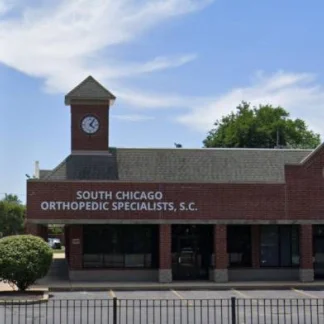NuWay Community Services
NuWay Community Services is a private rehab located in Chicago, Illinois. NuWay ...
Christian Community Health Center (CCHC) provides faith-based addiction recovery services for adults in Chicago, Illinois. Their services include crisis intervention, general outpatient programs (OP), and aftercare planning and support.
The center’s services are offered on an outpatient basis. Dedicated programming is available for young adults, families, and persons with co-occurring addiction and mental illness.
Clients in outpatient treatment receive medical and mental health assessments, personalized care planning, and case management. They also engage in culturally-responsive individual, group, and family counseling drawing on proven psychotherapeutic modalities. The program promotes clients’ sustained sobriety through robust, recovery-focused life-skills training that addresses topics such as coping, self-care, wellness, anger and stress management, spirituality, and relapse prevention.
Their aftercare services ensure a complete continuum of care aligned with clients’ evolving needs. These services may include employment and housing assistance, step-down support, and referrals for medical, mental health, and social service programs.
Christian Community Health Center (CCHC) is a registered 501(c)(3) nonprofit. They are state licensed and accept private insurance, Medicare, Medicaid, financing, sliding-scale payment schedules, and self-pay. Financial aid is available.
Contact us for more information: (773) 233-5850

Connect with Christian Community Health Center - CCHC by calling their admissions team directly.
(773) 233-5850 Website Get DirectionsWhether a marriage or other committed relationship, an intimate partnership is one of the most important aspects of a person's life. Drug and alcohol addiction affects both members of a couple in deep and meaningful ways, as does rehab and recovery. Couples therapy and other couples-focused treatment programs are significant parts of exploring triggers of addiction, as well as learning how to build healthy patterns to support ongoing sobriety.
Research clearly demonstrates that recovery is far more successful and sustainable when loved ones like family members participate in rehab and substance abuse treatment. Genetic factors may be at play when it comes to drug and alcohol addiction, as well as mental health issues. Family dynamics often play a critical role in addiction triggers, and if properly educated, family members can be a strong source of support when it comes to rehabilitation.
Group therapy is any therapeutic work that happens in a group (not one-on-one). There are a number of different group therapy modalities, including support groups, experiential therapy, psycho-education, and more. Group therapy involves treatment as well as processing interaction between group members.
In individual therapy, a patient meets one-on-one with a trained psychologist or counselor. Therapy is a pivotal part of effective substance abuse treatment, as it often covers root causes of addiction, including challenges faced by the patient in their social, family, and work/school life.
Research clearly demonstrates that recovery is far more successful and sustainable when loved ones like family members participate in rehab and substance abuse treatment. Genetic factors may be at play when it comes to drug and alcohol addiction, as well as mental health issues. Family dynamics often play a critical role in addiction triggers, and if properly educated, family members can be a strong source of support when it comes to rehabilitation.
Group therapy is any therapeutic work that happens in a group (not one-on-one). There are a number of different group therapy modalities, including support groups, experiential therapy, psycho-education, and more. Group therapy involves treatment as well as processing interaction between group members.
In individual therapy, a patient meets one-on-one with a trained psychologist or counselor. Therapy is a pivotal part of effective substance abuse treatment, as it often covers root causes of addiction, including challenges faced by the patient in their social, family, and work/school life.
Group therapy is any therapeutic work that happens in a group (not one-on-one). There are a number of different group therapy modalities, including support groups, experiential therapy, psycho-education, and more. Group therapy involves treatment as well as processing interaction between group members.
In individual therapy, a patient meets one-on-one with a trained psychologist or counselor. Therapy is a pivotal part of effective substance abuse treatment, as it often covers root causes of addiction, including challenges faced by the patient in their social, family, and work/school life.
In individual therapy, a patient meets one-on-one with a trained psychologist or counselor. Therapy is a pivotal part of effective substance abuse treatment, as it often covers root causes of addiction, including challenges faced by the patient in their social, family, and work/school life.
NuWay Community Services is a private rehab located in Chicago, Illinois. NuWay ...
Brass Foundation is a private rehab located in Chicago, Illinois. Brass Foundati...
PsyCynergy Psychological Services is a private rehab located in Harvey, Illinois...
Henry Booth House - Near South Family Health Center focuses on the development o...